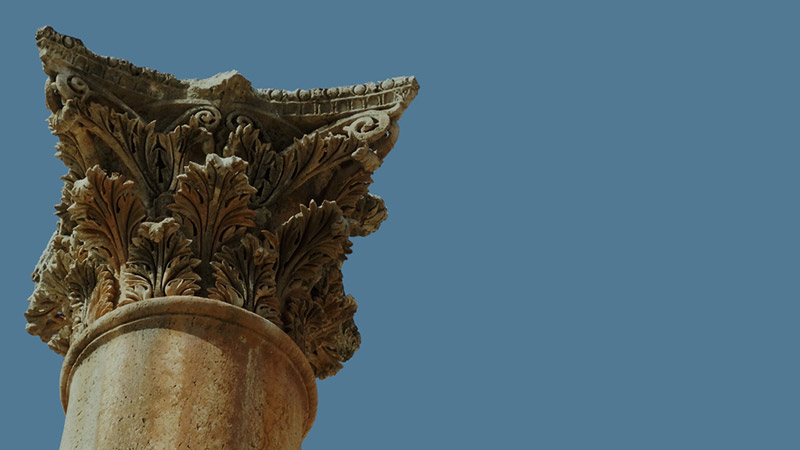More Results
Showing 12 of 30
Articles

No Greater Love
Korazin - The CityStudying the ruins of Korazin and other Galilean towns, scholars have pieced together a picture of family life in the first century. Korazin stood in the northwestern corner of the Galilee region, about three miles from the sea. ...
MOREEncyclopedia

Insulas
People in Galilee often lived in family housing complexes known as insulae (singular: insula). Although not everyone lived this way, many people (particularly extended families) combined living units around an open courtyard.This living arrangemen...
MORE
Korazin
Korazin stood in the northwestern corner of the Galilee region, about three miles from the Sea. The nearby cities of Capernaum and Bethsaida joined Korazin as part of the "orthodox triangle," an area inhabited primarily by devout J...
MORE
Orthodox Triangle Area
Certainly not all people who lived in this fertile area were religious or even Jewish. But it is clear that most inhabitants of the sea's northwestern side were very religious;a fact supported by the many synagogues discovered there.Jesus conducte...
MORE
People around the Sea
People Around the Sea Galilee was heavily populated in the first century, especially around the sea. The remains of the area indicate that several villages and towns had populations of more than 5,000 people. Perhaps that is one of the reasons Jes...
MORE
Ruins of Capernaum
This aerial view shows the remains of Capernaum, a small village on the northern shore of the Sea of Galilee ("Capernaum" comes from the Hebrew Kfar Nahum, which means "Nahum's Village"). Jesus chose this place as the hub of hi...
MORE
Sea of Galilee Climate and Life
Sea of Galilee Climate and LifeSeveral hot mineral springs surround the Sea of Galilee. The largest of these springs is located near the ancient capital city of Tiberias, where Herod Antipas once included it in his hot baths. The number of sick pe...
MORE
Susita
This photograph is taken from Mount Arbel on the western shore of the Sea of Galilee near Tiberias. The hilltop where Susita (Hippos) was located is clearly visible on the eastern shore. Towering over the Sea of Galilee, Susita is connected to the...
MORE
Synagogue of En Gedi
This spectacular mosaic floor from a synagogue built in the second or third century was found at the oasis of En Gedi along the Dead Sea. The synagogue hall shown here is 45 feet long and about 30 feet wide. It follows the synagogue style found in...
MORE
Synagogue of Gamla
The remains of this synagogue, one of the oldest found in Israel, are outlined in this photograph. It apparently functioned as a community center because no specifically religious artifacts were found in it. However, the mikveh (ritual bath) uncov...
MORE
Synagogues of Jesus' Time
Synagogues continued to be a focal point for Jewish life during the first century. By the time Jesus' ministry began, a synagogue was found in most towns of Galilee. The Gospels specifically mention those of Nazareth (Matt. 13:54) and Capernaum (M...
MOREGlossary

Insula Definition
A family household arrangement common in Capernaum and Korazin, where many rooms%u2014residences for various family members%u2014were built around a central courtyard.
MORE

















